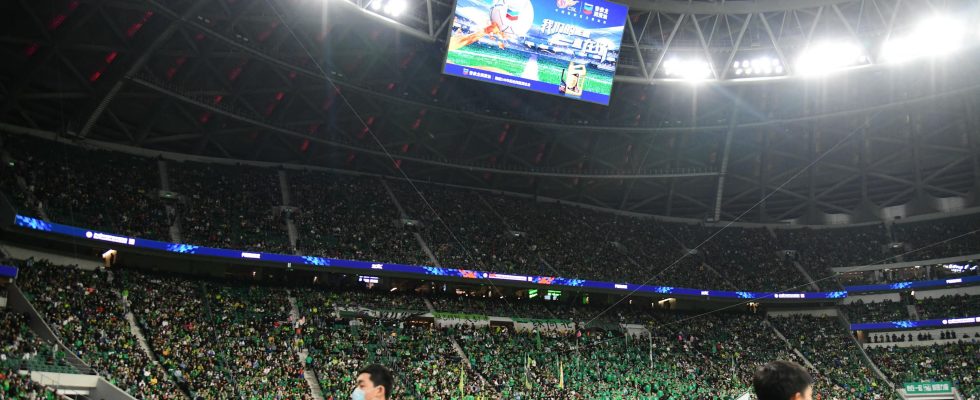Atmosphere of jubilation, this April 15, in the new stadium of the Workers, in Beijing. The capital club, Beijing Guoan, hosts the Meizhou team, Hakka FC. The 68,000 tickets were sold out in five minutes. “I’ve always been a fan of Beijing Guoan! And there, after a three-year hiatus due to Covid, we can finally see them play again, ignites a young tifosi dressed in the club’s green jersey. I hope that our chants will resonate throughout Beijing!” Same jubilation in other cities, where the matches were able to resume in public, this month of April. With the hope that Chinese football which, beyond the Covid, has continued to accumulate setbacks, will regain some of its shine.
Last month, the Federation appointed a new team to take over a totally discredited men’s league, where the president, vice-president and a dozen leaders are accused of corruption. Yet another scandal, which had already caused the national team coach to leave his post last November. After these arrests, Hu Xijin, the very nationalist editorialist of the daily GlobalTimes, publicly lamented the sorry state of Chinese football “which has gobbled up huge sums of money”, “humiliated the people” and is “rotten to the core”.
Humiliating defeats
Over the past twelve months, the national team has had a string of humiliating defeats against Vietnam and Oman, winning just one victory against the modest team from Hong Kong. The men in red only participated in one World Cup, twenty-one years ago!
This is not, however, for lack of investment. When the Chinese president is photographed kicking a ball at the start of his term, state media emphatically describes “his lifelong love for the sport”. Schools are ordered to introduce football into their curriculum and billions of dollars are allocated to build tens of thousands of pitches and training centres. Big companies are rushing to invest in professional teams in China and abroad, becoming important sponsors of Fifa, including at the last World Cup.
Unpaid wages
As a result, the Chinese Super League is becoming a major player in the global transfer market. Players who once would never have considered a career in China are flocking there, lured by sky-high salaries. A Chinese club would have even offered 105 million annual dollars to Ronaldo, who refused. “The hopes were really high, recalls Liu Dongfeng, professor at the Shanghai Sports University. And then, everything went off the rails…”
One after another, almost all of the football stars are leaving the country, frightened by the poor quality of the national championship, the unpaid wages and above all the three years of confinement linked to the Covid. Today, 39 clubs are bankrupt, such as Jiangsu Suning, owned by one of China’s richest men, which went out of business in 2021, a few months after winning the national championship.
Why such a failure? Admittedly, the pandemic and the economic crisis have not helped, such as the lack of national talent on the ground, but the failure of Chinese football is above all the symbol of a system that is out of breath. Like the Soviet Union, which considered sport as a political tool, China has made its athletes into little soldiers of the regime, whose performances in the stadiums must demonstrate the superiority of the socialist system over the capitalist system. “When the five-star Chinese red flag is hoisted after a victory, the people see it as a representation of the greatness of China, assures a Chinese sports journalist. But in a country devoid of the rule of law and checks and balances, and in a society that puts money above all else, the influx of vast sums into the sport has only spawned appalling corruption.”
spoiled children
“Most Chinese professional players are spoiled children, unable to play as a team and rotten by salaries that bear no relation to their real talent, he believes. As proof, the women’s football team is doing quite well because money does not flow there”.
Stubborn, the Chinese Football Federation appointed this year the former coach of Standard, the Serb Aleksandar Jankovic, at the head of its national men’s team. First objective: the Asian Cup, next June. Then, China hopes to climb the slope and, why not, one day organize the World Cup. Xi Jinping dreams of a victory for his players in 2050 for the 100th anniversary of the People’s Republic of China.
